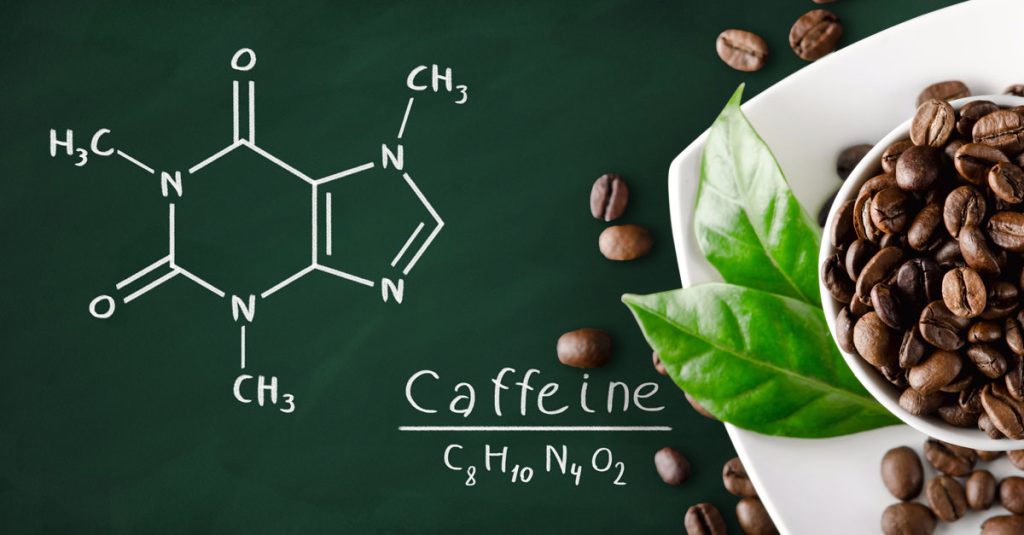Do you start your day with a cup of coffee? Or maybe you drink a can of soda in the afternoon? If so, you’re not alone. Caffeine is one of the most consumed substances in the world. But is caffeine good or bad for you? That’s a question that many people are still trying to answer. This blog post will take a look at the pros and cons of caffeine and help you decide if it’s good or bad for you!
Contents
Pros of Caffeine
Stimulant
One of the main pros of caffeine is that it’s a stimulant. This means that it can help increase your energy and alertness. If you’re feeling tired, a cup of coffee or tea can help perk you up. Being stimulated from drinking caffeine can help you stay awake and focused when you need to be. Caffeine can also increase your metabolic rate, which gives you an energy boost.
Weight Loss
Another pro of caffeine is that it can help with weight loss. It does this by increasing your metabolism and helping burn fat. It’s also a diuretic, which means it helps flush out excess water from your body. A few studies have even been done to see if caffeine may be helpful in weight loss. One study showed that participants who added caffeine to their diet lost more weight than those who didn’t. However, more research is needed on this topic. So, if you’re trying to lose weight, adding a cup of coffee or green tea to your daily routine can help give you a boost.
Physical Performance
Your physical performance is boosted by caffeine because it helps the body produce more energy. Caffeine is also known to improve physical performance, especially in endurance athletes. For example, one study showed that caffeine improved running time by about five percent. Another study showed that cyclists who took caffeine were able to ride faster and for a longer period of time.
Alertness
Caffeine can also help improve your focus and concentration. For example, students who need to stay awake and focused during exams often use it. It can also help you stay alert when you’re driving or working. As most of us know, alertness is essential when you need to be productive and focused.
Adrenaline
Caffeine also causes the body to produce more adrenaline. Adrenaline is a hormone that helps prepare your body for physical activity. It gives you a burst of energy and makes you more alert. This can be helpful if you’re trying to get through a tough workout or stay focused during an important meeting. In addition, adrenaline gives you the “fight or flight” response, which can be helpful in certain situations.
Cons of Caffeine
Anxiety and Jitters
One of the main cons of caffeine is that it can cause anxiety and jitters. This is because caffeine is a stimulant, and it can increase your heart rate. If you have anxiety or are sensitive to caffeine, you may want to avoid it. If you drink too much coffee or soda, you may start to feel anxious or agitated. You may also experience heart palpitations and shaky hands.
Dehydration
Another con of caffeine is that it can cause dehydration. Caffeine is a diuretic, which means it makes you urinate more frequently. This can lead to dehydration if you’re not drinking enough fluids. When you’re dehydrated, your body doesn’t have enough water to function properly. This can lead to fatigue, headaches, and dizziness. So if you’re going to consume caffeine, be sure to drink plenty of water throughout the day.
Stomach Issues
Caffeine can also cause stomach issues like heartburn and indigestion. This is because caffeine relaxes the lower esophageal sphincter (LES). The LES is a muscle that separates the stomach from the esophagus. When it’s relaxed, acid from the stomach can reflux back up into the esophagus, which can cause heartburn and indigestion. So if you have GERD or are sensitive to caffeine in any way, you may want to avoid it.
Insomnia
Another downside of caffeine is that it can interfere with sleep. If you drink caffeinated beverages late in the day, they can keep you from getting a good night’s rest. Caffeine has a long half-life, which means that it stays in your system for a while. It can take up to eight hours for caffeine to be eliminated entirely from your body. This means that if you drink coffee or tea in the evening, it can keep you awake longer when trying to go to sleep.
Addictive
Maybe the biggest downside is it’s possible to develop a dependence on caffeine. This means that if you suddenly stop consuming caffeine, you may experience withdrawal symptoms like headaches, irritability, and fatigue. Being dependent on caffeine isn’t healthy and can be challenging to break free from.
Conclusion
So, is caffeine good or bad for you? Overall, caffeine has both positive and negative effects on the body. The answer really depends on how much caffeine you’re consuming and how it affects your individual body. Suppose you’re experiencing negative side effects from caffeine. In that case, it’s probably best to cut back or try to wean yourself off of it altogether. However, if you’re enjoying all the benefits that caffeine has to offer and it’s not causing any problems for you, then go ahead and keep drinking!












